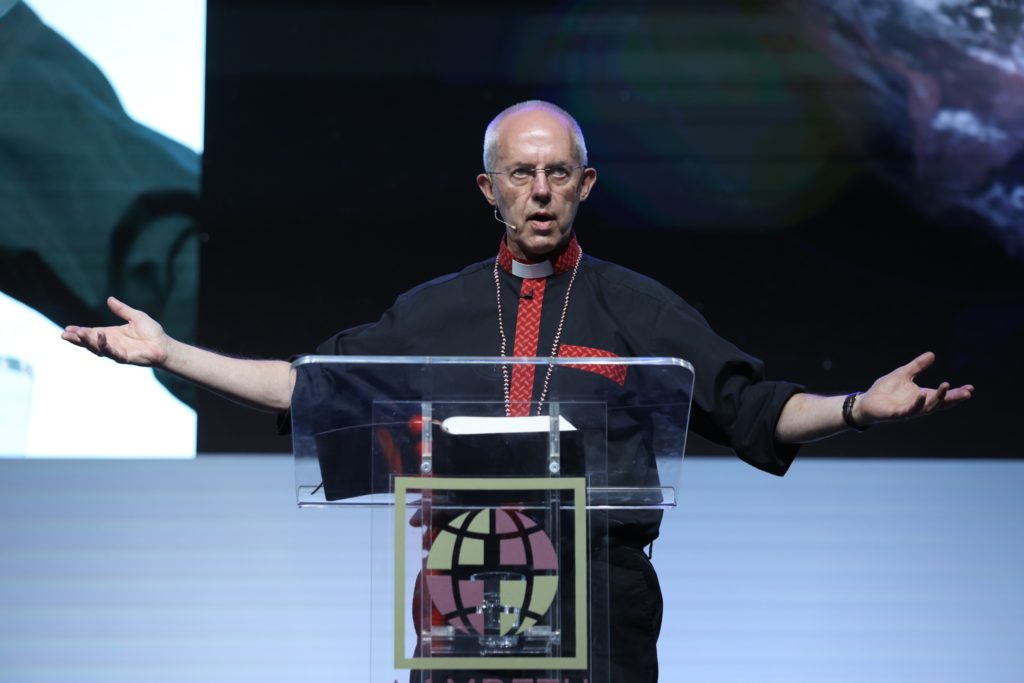Gifts and Blessings received at the Lambeth Conference: 26 July – 8 August 2022
In the Letter for July, looking ahead to the Lambeth Conference, I identified five things that I was looking forward to. Were those hopes and anticipations realised? Well …
Most of all, it was a stupendous event, massive in the logistical and administrative demands, deeply impressive in the hospitality shown by the Archbishop of Canterbury and Mrs Welby as hosts, and both joyful and moving in the fellowship between bishops, spouses, and cultures supported by a team of interpreters working in nine languages. In terms of my own hopes, they were realised (and challenged) in a variety of ways.
Hearing the stories of other bishops, particularly from Africa and Asia, was indeed to enter another world. I met bishops who are peace-makers, peace-keepers, or mediators; bishops at daily risk from perils almost as acute as those described by St Paul in his second letter to Corinth; bishops whose dioceses are so large that they travel hundreds of miles, getting to see individual clergy and parishes perhaps once a year; bishops who are prophets; bishops who have to raise every pound and penny to enable their ministry and to allow their churches to live. All of them are deeply courageous and faithful. For many of them, the journey to Canterbury was a massive undertaking, and simply to sit with them was a blessing.
What was discussed? Mission and Evangelism; Safe Church; Anglican Identity; Reconciliation; Human Dignity; Christian Unity; Inter Faith Relations; Discipleship; Environment and Sustainable Development; Science and Faith. On each of these there was a ‘Lambeth Call’, which contained a link to Scripture, a template for action, and further emerging developments. The texts of the Calls are available on the Lambeth Conference website at Lambeth-Calls-July-2022.pdf (lambethconference.org)
The study of the First Letter of Peter was led by Archbishop Justin himself, with an exposition at the beginning of each day. It is not an easy text in some respects, but the historical context and setting were worked through, and its message of faithfulness in the midst of the world’s challenges was very apparent in its applicability to our own day.
The same was true of the difficult, and widely reported, issue of human relationships within the Call on Dignity. It is in this area that different cultural perspectives become very apparent, and the sheer breadth of our Communion inevitably brings with it a range of views. The Conference retained the traditional understanding of marriage as between a man and a woman, as expressed at the Conference of 1998, but it was also made clear that certain Provinces within the Anglican Communion have, after lengthy prayer and reflection and care, accepted and blessed same-sex marriage, and that it is not for the Archbishop of Canterbury to bring sanctions against those Provinces. A letter and an address from the Archbishop of Canterbury (Letter from the Archbishop of Canterbury to the Bishops of the Anglican Communion | The Archbishop of Canterbury; and Lambeth Call on Human Dignity: Read Archbishop Justin’s remarks | The Archbishop of Canterbury) were very helpful, particularly in noting that different Provinces face different contexts for mission, and in emphasising that disagreement on this matter cannot and must not prevent us from continuing to be in fellowship and to walk with love and respect together. The Conference felt able to express support for this, which will eventually be reflected in the finalised text of the Call, and it is a perspective which allows the Church of England to continue its work on Living in Love and Faith (LLF). This is the task to which the Church of England’s College of Bishops will give much time over this autumn. For my part, in this Diocese of Sodor and Man, I am grateful for all the time and care that we have given to LLF, and I remain committed to taking it forward in a spirit of care and respect for one another and with recognition of our individual perspectives and experiences.
I spent much time speaking of the Isle of Man and of our diocese in conversation with other bishops, and will look now to strengthen those relationships, including investigating possibilities for twinning or partnering with dioceses elsewhere in the world – places, perhaps, that have something in common with us, but whose geographical and cultural setting is very different. In this way, we can continue to contribute to the life of the global and universal Church, learning from one another through the gift of our shared but different experience of belonging to the Anglican Communion.
Deo Gratias: thanks be to God.
With prayers for us all
+ Peter


